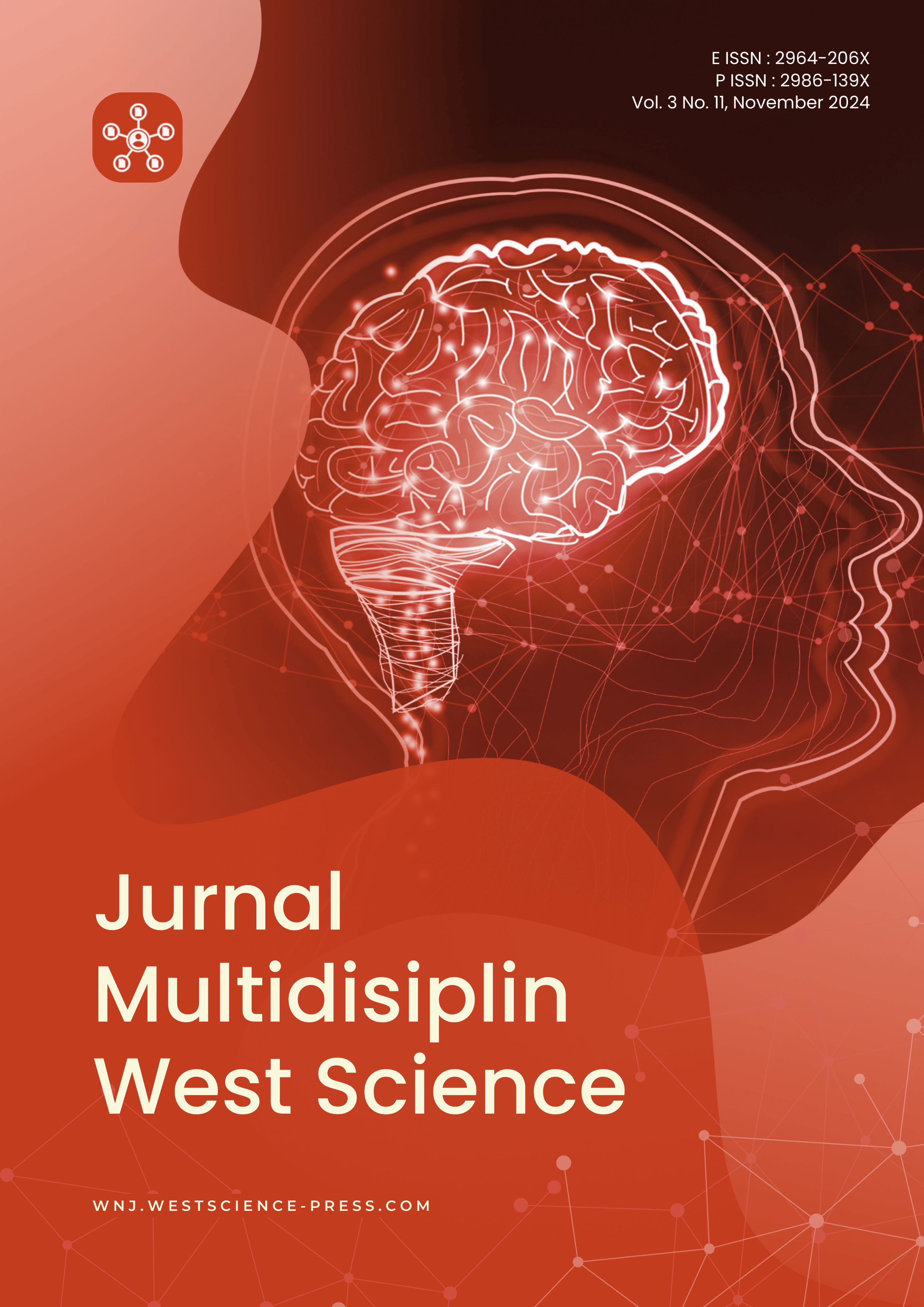Kajian Bibliometrik tentang Inovasi Kepemimpinan untuk Generasi Millennial dan Gen Z
DOI:
https://doi.org/10.58812/jmws.v3i11.1742Kata Kunci:
Gen Z, Inovasi Kepemimpinan, Manajemen, Teknologi, Pendidikan, Analisis BibliometrikAbstrak
Studi ini menggunakan analisis bibliometrik dengan VOSviewer untuk memetakan dan menganalisis lanskap penelitian terkini dalam bidang manajemen, teknologi, pendidikan, dan kesehatan yang berkaitan dengan inovasi dan kepemimpinan Gen Z. Hasilnya menunjukkan bahwa ada integrasi yang signifikan antara teknologi dan praktik manajerial, serta peningkatan fokus pada pengalaman karyawan dan inovasi. Sementara itu, isu-isu pendidikan dan kesehatan terus mendapat perhatian melalui penelitian yang menggarisbawahi pentingnya adaptasi institusional dan kolaborasi lintas sektoral. Penelitian ini menyarankan pentingnya pendekatan holistik dalam menggabungkan teknologi, kebijakan, dan partisipasi komunitas untuk mengatasi tantangan kontemporer. Dengan menyajikan pemahaman yang mendalam tentang dominasi dan perkembangan tema penelitian, studi ini memberikan wawasan untuk mengembangkan strategi yang lebih efektif dan berkelanjutan dalam pendidikan, kesehatan, manajemen, dan teknologi.
Referensi
Baker, T. B., McFall, R. M., & Shoham, V. (2008). Current status and future prospects of clinical psychology: Toward a scientifically principled approach to mental and behavioral health care. Psychological Science in the Public Interest, 9(2), 67–103.
Burns, R. P. (2001). Some ethical issues surrounding mediation. Fordham L. Rev., 70, 691.
Chiesa, V., Coughlan, P., & Voss, C. A. (1996). Development of a technical innovation audit. Journal of Product Innovation Management: An International Publication of the Product Development & Management Association, 13(2), 105–136.
Chung, W. K., Erion, K., Florez, J. C., Hattersley, A. T., Hivert, M.-F., Lee, C. G., McCarthy, M. I., Nolan, J. J., Norris, J. M., & Pearson, E. R. (2020). Precision medicine in diabetes: a consensus report from the American Diabetes Association (ADA) and the European Association for the Study of Diabetes (EASD). Diabetes Care, 43(7), 1617–1635.
Deal, J. J., Altman, D. G., & Rogelberg, S. G. (2010). Millennials at work: What we know and what we need to do (if anything). Journal of Business and Psychology, 25, 191–199.
Edvinsson, L. (1997). Developing intellectual capital at Skandia. Long Range Planning.
Gallup, A., Gallup, A. M., & Newport, F. (2007). The Gallup Poll: Public Opinion 2005. Rowman & Littlefield.
Gronn, P. (2008). The future of distributed leadership. Journal of Educational Administration, 46(2), 141–158.
Guthold, R., Stevens, G. A., Riley, L. M., & Bull, F. C. (2020). Global trends in insufficient physical activity among adolescents: a pooled analysis of 298 population-based surveys with 1· 6 million participants. The Lancet Child & Adolescent Health, 4(1), 23–35.
Korten, D. C. (1987). Third generation NGO strategies: A key to people-centered development. World Development, 15, 145–159.
Lee, S. M., Tan, X., & Trimi, S. (2005). Current practices of leading e-government countries. Communications of the ACM, 48(10), 99–104.
Lord, R. G., Brown, D. J., Harvey, J. L., & Hall, R. J. (2001). Contextual constraints on prototype generation and their multilevel consequences for leadership perceptions. The Leadership Quarterly, 12(3), 311–338.
Mubarik, L. D., Iskamto, B. K., & Sakib, K. N. (2023). Entrepreneurial Competencies and Success of SMEs in Changwon, South Korea. Journal of Entrepreneurship & Project Management, 7(8 SE-Articles), 1–11. https://doi.org/10.53819/81018102t5206
Putriani, L., Handayani, P. G., Kurnia, R., Putra, F. W., & Febriani, R. D. (2023). Sikap remaja gen-z berlatar budaya Minangkabau terhadap perilaku seks bebas. Jurnal EDUCATIO: Jurnal Pendidikan Indonesia, 9(2), 1039–1047.
Schroth, H. (2019). Are you ready for Gen Z in the workplace? California Management Review, 61(3), 5–18.
Sinek, S. (2014). Leaders eat last: Why some teams pull together and others don’t. Penguin.
Suwanto, S., Sunarsi, D., & Achmad, W. (2022). Effect of Transformational Leadership, Servant Leadershi, and Digital Transformation on MSMEs Performance and Work Innovation Capabilities. Central European Management Journal, 30(4), 751–762.
Vecchio, R. P., Justin, J. E., & Pearce, C. L. (2008). The utility of transactional and transformational leadership for predicting performance and satisfaction within a path-goal theory framework. Journal of Occupational and Organizational Psychology, 81(1), 71–82. https://doi.org/10.1348/096317907X202482
Visser, W., & Crane, A. (2012). Corporate Sustainability and the Individual: Understanding What Drives Sustainability Professionals as Change Agents. SSRN Electronic Journal, January. https://doi.org/10.2139/ssrn.1559087
Unduhan
Diterbitkan
Cara Mengutip
Terbitan
Bagian
Lisensi
Hak Cipta (c) 2024 Loso Judijanto, Achmad Harristhana Mauldfi Sastraatmadja, Supriandi Supriandi

Artikel ini berlisensiCreative Commons Attribution-ShareAlike 4.0 International License.



















 Instagram
Instagram 